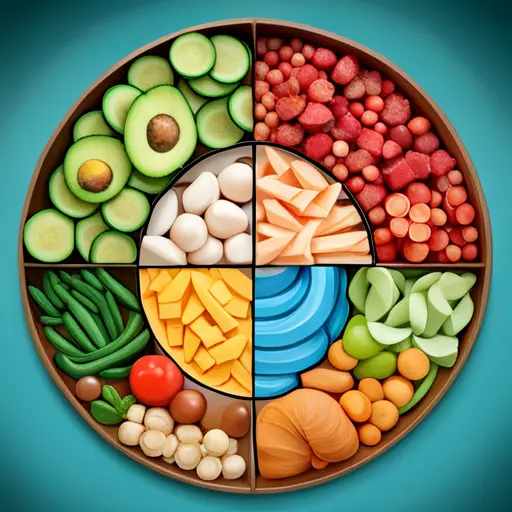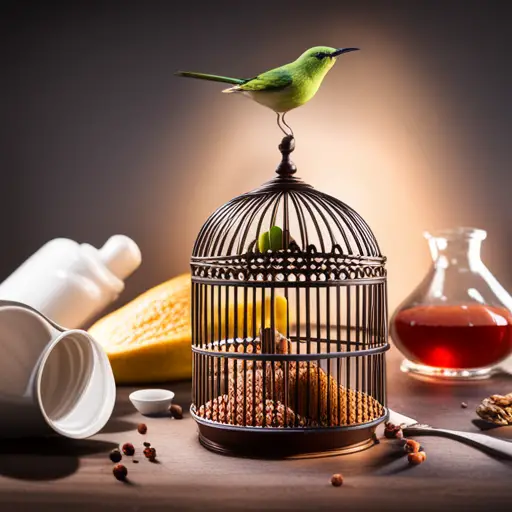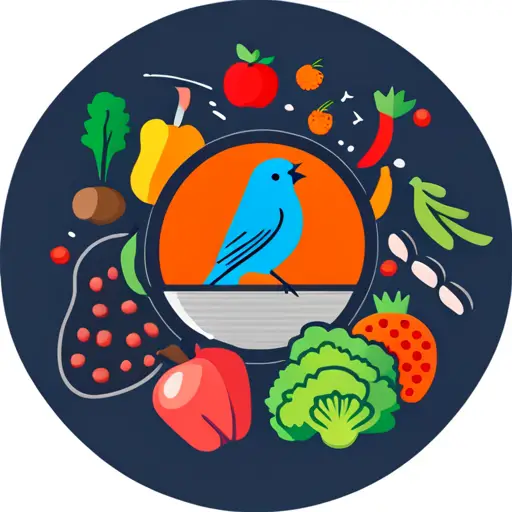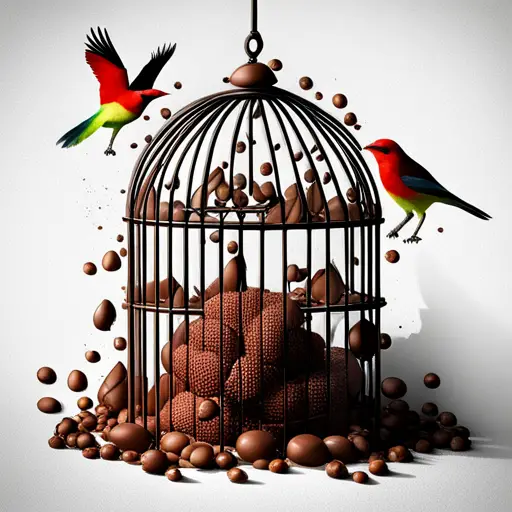Are you a proud bird owner who wants to ensure the health and longevity of your feathered friend? One of the most important aspects of bird care is their diet. As a responsible pet owner, it’s crucial to be mindful of what foods you are feeding your bird.
Some foods that may seem harmless to us can actually be harmful or even deadly to birds. In this article, we’ll go over the foods you should avoid and the safe and healthy options you can incorporate into your bird’s diet.
You may have heard the phrase ‘you are what you eat,’and this is especially true for birds. Unlike humans, birds have a unique digestive system that is designed to break down and absorb nutrients from their food efficiently. However, this also means that certain foods can be hard on their digestive system and cause health issues.
As a bird owner, it’s your responsibility to provide a balanced and nutritious diet for your feathered friend. By being mindful of the foods you feed your bird, you can ensure their health and happiness for years to come.
Key Takeaways
– Certain foods can be harmful or deadly to birds, even if they seem harmless to humans.
– Foods to avoid feeding birds include avocado, chocolate, and alcohol.
– Seasoning and spices should be avoided when preparing bird food.
– Birds need a balanced diet that provides them with all necessary nutrients.
Overview of Bird Digestive Systems

Did you know that birds have a unique digestive system? It consists of a crop, proventriculus, gizzard, and two-part cloaca. Understanding the anatomy and physiology of a bird’s digestive system is essential in maintaining their health and preventing any potential harm caused by improper feeding.
The digestive process for birds starts with the crop, which is a pouch-like structure in the esophagus that stores food temporarily before it moves down to the proventriculus. Here, gastric juices and enzymes break down the food. The gizzard, also known as the muscular stomach, is where the grinding and crushing of food occurs.
The two-part cloaca is the final stage of digestion, where the waste products are eliminated from the body. Knowing how a bird’s digestive system works will help you make better decisions on what foods to feed them.
Now, let’s talk about the foods to avoid that can potentially harm your feathered friends.
Foods to Avoid

Hey, you might want to steer clear of certain edibles if you want your feathered friend to stay hale and hearty. Birds and human foods don’t always mix well.
Some common household toxins can be harmful to your bird’s health. Here are three foods to avoid feeding your bird:
1. Avocado – This fruit contains persin, which can cause heart damage and respiratory distress in birds.
2. Chocolate – Chocolate contains theobromine, which can be toxic to birds and cause seizures or death.
3. Alcohol – Birds are highly sensitive to alcohol and even small amounts can be lethal.
It’s important to keep in mind that these are just a few examples of foods to avoid. Always do your research and consult with a veterinarian before introducing new foods into your bird’s diet.
Now, let’s talk about safe and healthy foods for birds.
Safe and Healthy Foods for Birds

Surprisingly, some of the most nutritious and delicious treats for our feathered friends can be found in our very own kitchens! Birds have specific nutritional requirements that must be met in order to keep them healthy and happy.
Luckily, there are many safe and healthy bird snacks that you can offer your pet to supplement their diet and provide variety in their meals. Some examples of healthy bird snacks include fresh fruits and vegetables, such as carrots, kale, and apples. You can also offer your bird cooked grains, such as brown rice or quinoa, or even small amounts of lean protein, like cooked chicken or boiled eggs.
Just be sure to avoid seasoning or adding any spices to these foods, as they can be harmful to birds. By providing these nutritious snacks, you can ensure that your bird is getting a well-rounded diet that meets their nutritional requirements.
When it comes to feeding your bird, there are a few tips to keep in mind. One important rule is to always offer fresh food and water daily, and to clean their bowls regularly to prevent the growth of bacteria. Additionally, be sure to research your bird’s specific dietary needs and consult with a veterinarian if you have any concerns about their health.
By following these feeding tips and offering healthy bird snacks, you can help ensure that your feathered friend stays happy and healthy for years to come!
Feeding Tips

When it comes to feeding your bird, there are a few important tips to keep in mind.
First, it’s important to control portion sizes and frequency of feeding to ensure your bird is getting the right amount of nutrients without overeating.
Second, preparing and serving food properly can help prevent contamination and ensure your bird’s safety.
Lastly, don’t forget about water and hydration – make sure your bird always has access to fresh, clean water.
Portion Control and Frequency
To ensure the health of your bird, you must be mindful of portion control and frequency when feeding them. Birds need a balanced diet that provides them with all the necessary nutrients. Overfeeding your bird can result in obesity, which can lead to health problems like heart disease and liver problems. On the other hand, not feeding your bird enough can cause malnutrition and weaken their immune system.
Here are some tips to help you manage your bird’s portion control and frequency:
– Portion Control:
– Use a food scale to measure the amount of food you serve your bird.
– Avoid giving your bird too many treats, as they can be high in fat and sugar.
– If you notice that your bird is gaining weight, reduce the amount of food you give them.
– Frequency:
– Feed your bird twice a day, once in the morning and once in the evening.
– Make sure your bird has access to fresh water at all times.
– Only leave food in your bird’s cage for a maximum of 2 hours at a time to prevent spoilage.
By following these portion control and frequency guidelines, you can ensure that your bird is getting the right amount of nutrients without overfeeding or underfeeding them. Now that you know how to manage your bird’s diet, let’s move on to the next section about preparing and serving food.
Preparing and Serving Food
Preparing and serving food for your bird can be easy if you follow some simple steps. To ensure that your bird stays healthy and happy, it’s important to pay attention to food safety and cooking techniques. Always make sure that any fruits or vegetables you offer your bird are washed thoroughly and free of pesticides. You should also avoid feeding your bird any spoiled or moldy food, as this can lead to illness.
When it comes to cooking techniques, you should avoid using any seasonings or spices on your bird’s food. These can be harmful to their delicate digestive systems. Instead, try steaming or boiling vegetables to retain their nutrients and make them easier to digest. By taking these simple steps, you can ensure that your bird is getting the nutrition they need to thrive.
As you consider your bird’s overall health, it’s important to remember the role that water and hydration play.
Water and Hydration
Proper hydration is crucial for keeping your feathered friend in top form, so be sure to provide fresh water daily. Don’t assume that just because your bird isn’t drinking much water, it doesn’t need it. Birds can easily become dehydrated, which can cause serious health problems.
Here are some things to keep in mind when it comes to water and hydration:
– Importance of Clean Water: Make sure the water you provide is clean and fresh. Birds can be very sensitive to bacteria and other contaminants in their water. Change the water daily and clean the water dish regularly to prevent buildup of harmful substances.
– Dehydration Prevention: Keep an eye out for signs of dehydration, such as lethargy, dry skin, and sunken eyes. Encourage your bird to drink more water by providing water sources in different areas of its cage or aviary, adding fresh fruits and vegetables to its diet, and misting it with water periodically.
By paying attention to your bird’s water and hydration needs, you can help it stay healthy and happy. Be sure to provide clean, fresh water every day and watch for signs of dehydration. Your feathered friend will thank you for it!
Conclusion
Great job! Now that you know which foods to avoid, you can make sure your feathered friend stays healthy and happy.
Remember, birds have a unique digestive system that requires specific nutrients and dietary needs. Feeding them the wrong foods can lead to serious health issues, so it’s important to be aware of what to avoid.
One thing to keep in mind is that just because a food is safe for humans, doesn’t mean it’s safe for birds. Be sure to do your research and consult with a veterinarian before introducing any new foods into your bird’s diet.
By following these tips and guidelines, you can ensure that your bird stays healthy and well-fed for years to come. And always remember, when it comes to feeding your bird, it’s better to be safe than sorry.
In conclusion, giving your bird the right food can make a huge difference in their overall health and well-being. By avoiding dangerous foods and sticking to safe and healthy options, you can help your bird thrive and live a long and happy life.
Just keep in mind that what’s good for us isn’t always good for them, and don’t forget to do your research before introducing new foods. As the old saying goes, “you’re what you eat,”and that goes for our feathered friends too!
